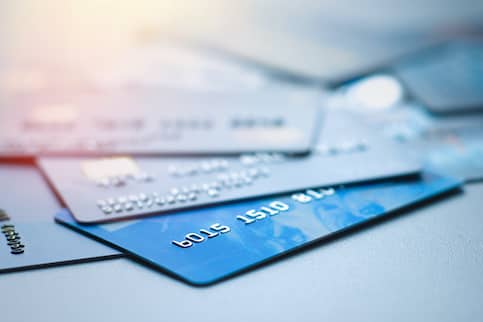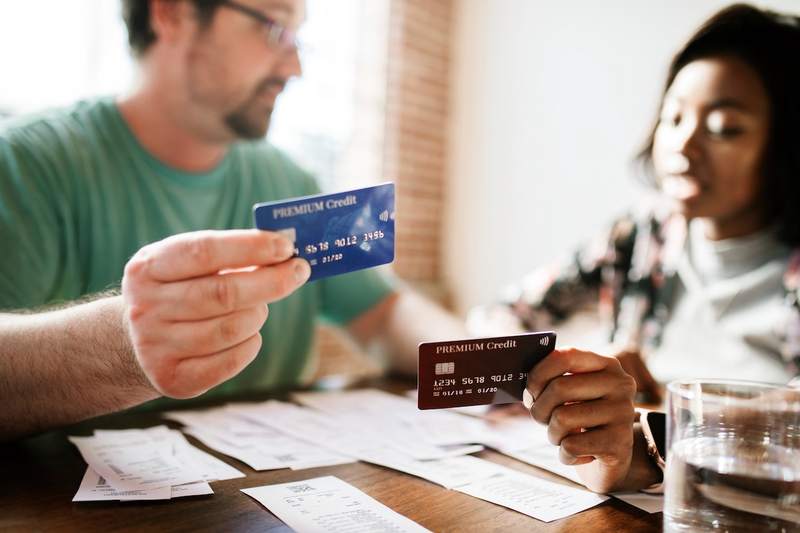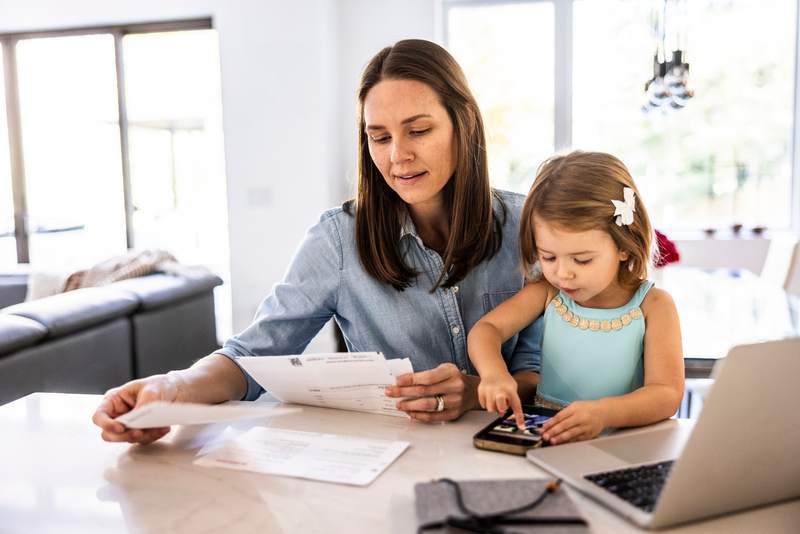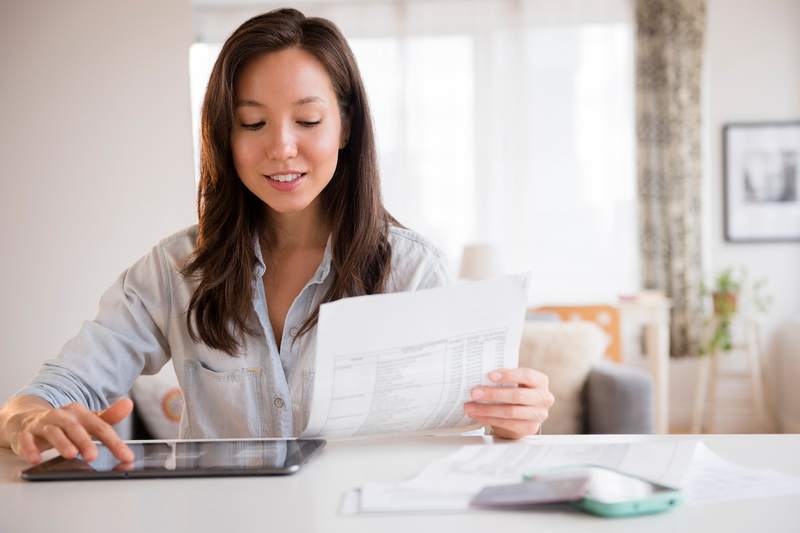Managing multiple debt payments can make your life unnecessarily complicated. If you’re tired of managing multiple payments and deadlines, a personal loan for debt consolidation could be the solution you’ve been waiting for. With debt consolidated into one payment – and one interest rate – you could potentially save time and money while avoiding confusion.
Personal Loan Overview
A personal loan is an installment loan with a fixed monthly payment. A big appeal of a personal loan is that you’ll know exactly what the lender expects you to pay each month.
With the fixed payments of an installment loan, you can more easily build your budget than with the fluctuating monthly payments that come with a revolving line of credit.
Personal loans are a type of unsecured debt. With that, you won’t have to put up an asset as collateral for your loan or worry about the possibility of the lender repossessing the asset if you fall behind on your payments.
Every lender sets their own eligibility requirements and may evaluate loan eligibility on an individual basis. But typically, you can expect to need a credit score of at least 580 and a debt-to-income (DTI) ratio of 40% or less to tap into the most affordable personal loan options. Keep in mind that, while you may be able to qualify for a personal loan with a lower credit score or higher DTI, you’ll have less desirable loan terms, including a higher interest rate.
Reasons To Get A Personal Loan For Debt Consolidation
You can use a personal loan for any number of reasons, including debt consolidation. Below are some reasons why you might decide to get a personal loan to consolidate your debt.
- Reduce the number of monthly payments you face.
- Pay off high-interest credit card debt.
- Boost your credit by sticking to on-time monthly payments.
- Budget easier with a predictable monthly payment.
The reality is that you’ll likely have more than one reason for pursuing a personal loan for debt consolidation. It’s okay to have multiple reasons!
See What You Qualify For
Buy A Home
Discover mortgage options that fit your unique financial needs.

Refinance
Refinance your mortgage to have more money for what matters.
Tap Into Equity
Use your home’s equity and unlock cash to achieve your goals.
How Does Using A Personal Loan For Debt Consolidation Work?
The process of getting a personal loan for debt consolidation varies slightly from lender to lender. But usually, you’ll follow the following steps:
- Shop around: Every lender offers slightly different interest rates and loan details. Shopping around can help you find the most affordable option for your unique situation.
- Submit an application: When you find the ideal lender, you’ll need to submit a loan application. Be prepared to provide information about your identity, credit history and income to complete an application.
- Receive the funds: If your loan application is approved, the lender will disburse the funds. In some cases, the lender will pay off your other debts directly. This involves providing the new lender with information about your loans to complete the payoff. But in other cases, the lender will deposit the money directly into your account, which you can then use to pay off your other loans.
- Pay back the personal loan: When you use a personal loan to consolidate your debt, you are not paying off your debt. Instead, you are transferring it to a new debt. You will still need to pay off the amount you owe. Instead of making multiple payments to multiple lenders, you’ll make one, monthly payment to the lender of your personal loan.
The timeline for this process varies. It could take up to a week to finalize everything with some lenders. But other lenders can offer same-day funding to some applicants.
Pros And Cons Of Using A Personal Loan To Consolidate Debt
Every financial product has advantages and disadvantages. Consider both sides before moving forward with a personal loan for debt consolidation.
Pros Of Consolidating Debt With A Personal Loan
- The convenience of a single monthly payment: Combining your outstanding debt payments into a single monthly payment can help you get a firm grasp of your financial situation. Without the stress that comes with juggling multiple payments, you can build a straightforward budget that works for your finances.
- Having a lower interest rate: Personal loans often have lower interest rates than some types of debt, like credit cards. A lower, fixed interest rate can help you save thousands while repaying your debt. But not all borrowers will find lower interest rates. Typically, a debt consideration loan only makes sense if you can find a lower interest rate.
- A decreased likelihood of missing a monthly debt payment: With just one monthly payment to monitor, you are less likely to miss a monthly payment. Sticking with on-time monthly payments can help you improve your credit score and avoid late fees.
Cons Of Consolidating Debt With A Personal Loan
- Having a less diverse credit mix: If you close your credit cards after paying off the balance with your personal loan funds, then your credit mix will be less diverse. This can have a negative impact on your credit score.
- The potential to accumulate additional debt after consolidating: It’s critical to assess your spending habits to ensure you don’t end up racking up more debt on your credit cards or use your personal loan for something other than your intended use of consolidating debt.
- Having to pay a personal loan origination fee: The exact size of an origination fee varies based on the lender. But in general, you can expect to pay between 1% and 8% of the loan amount.
Alternative Ways To Consolidate Debt
A personal loan isn’t the only option for debt consolidation. Below is a closer look at some alternative ways to consolidate your debt.
- Home equity loan: If you have enough equity, a home equity loan is an option to help you pay off other debts. In general, home equity loans have relatively low interest rates attached. But since your home is used as collateral, you’re essentially adding a second mortgage payment to your budget.
- Home equity line of credit (HELOC): A HELOC is a revolving line of credit secured by your home equity. Unlike a home equity loan, the monthly payment can vary over time and you’ll withdraw from a line of credit instead of receiving one lump sum. But if you don’t make the payments on time, you risk losing your home.
- Cash-out refinance: A cash-out refinance replaces your current mortgage with a new loan that has a larger balance. At the end of the transaction, you’ll have a single monthly mortgage payment and a lump sum of cash you can use to pay off other debts.
The Bottom Line: Using A Personal Loan To Consolidate Debt May Be A Smart Financial Move
If you’re ready to get your finances on the right track, a debt consolidation loan is a useful tool. You can use a debt consolidation loan to lock in a single monthly payment, which allows for a more manageable budget. Plus, you’ll eliminate the financial threat that comes with the ever-accumulating nature of credit card debt.
But debt consolidation isn’t the only way to use a personal loan. Check out other types of personal loans to see where one might fit into your financial picture.

Sarah Sharkey
Sarah Sharkey is a personal finance writer who enjoys diving into the details to help readers make savvy financial decisions. She’s covered mortgages, money management, insurance, budgeting and more. She lives in Florida with her husband and dog. When she's not writing, she's outside exploring the coast. You can connect with her on LinkedIn.












